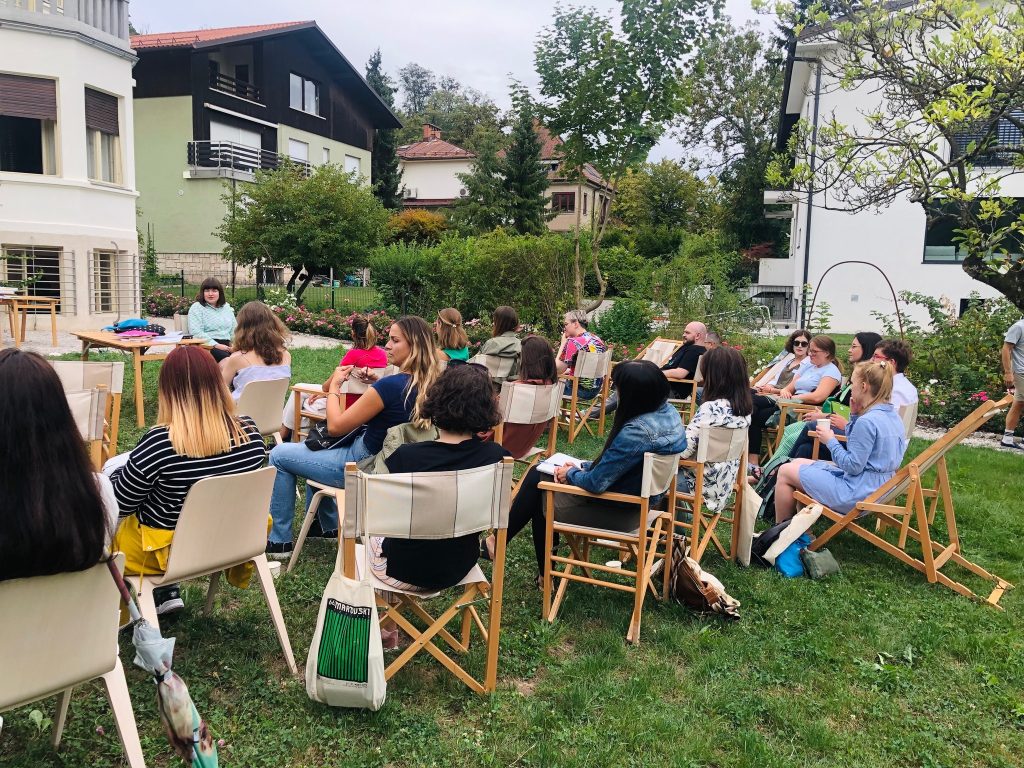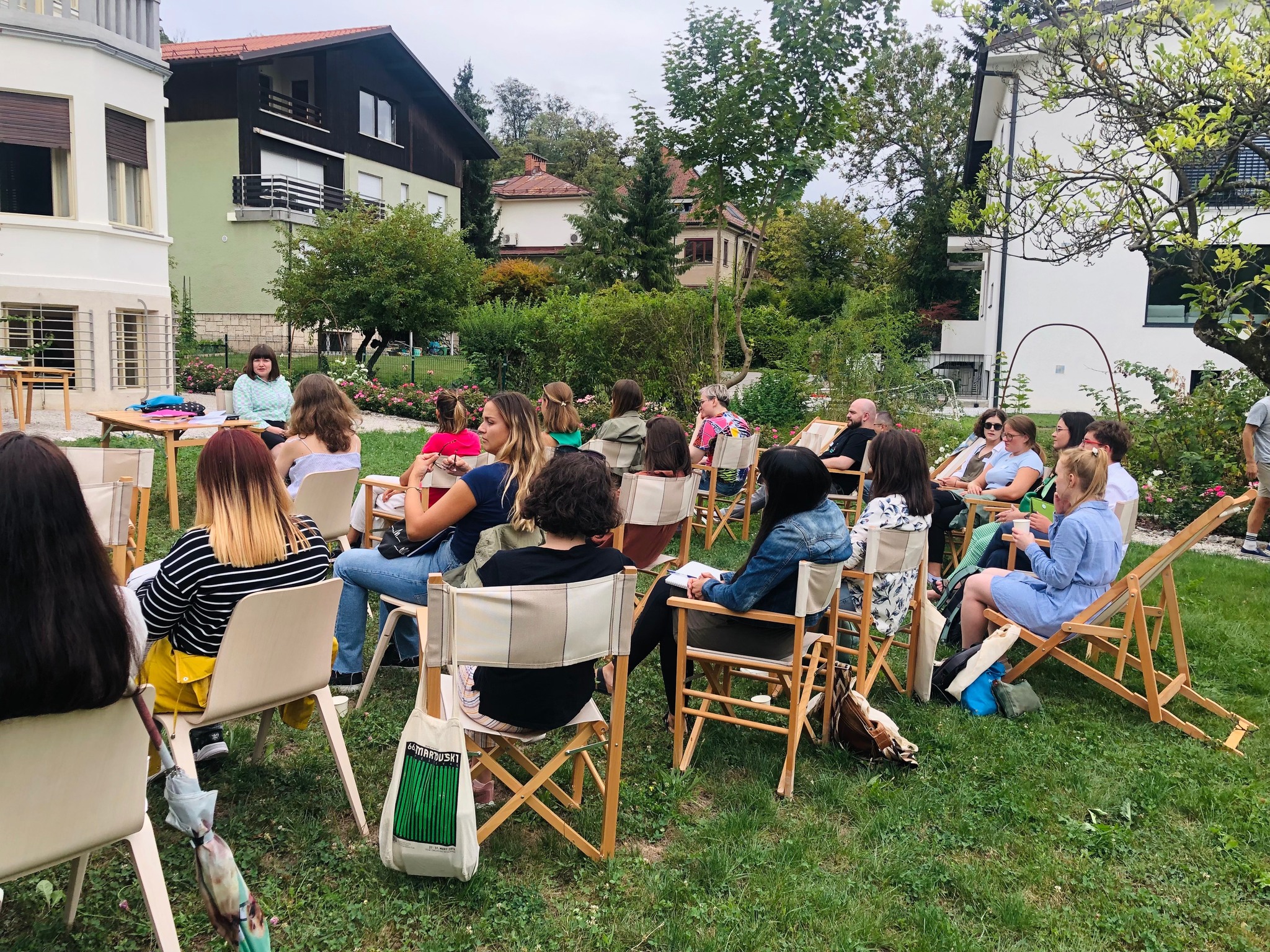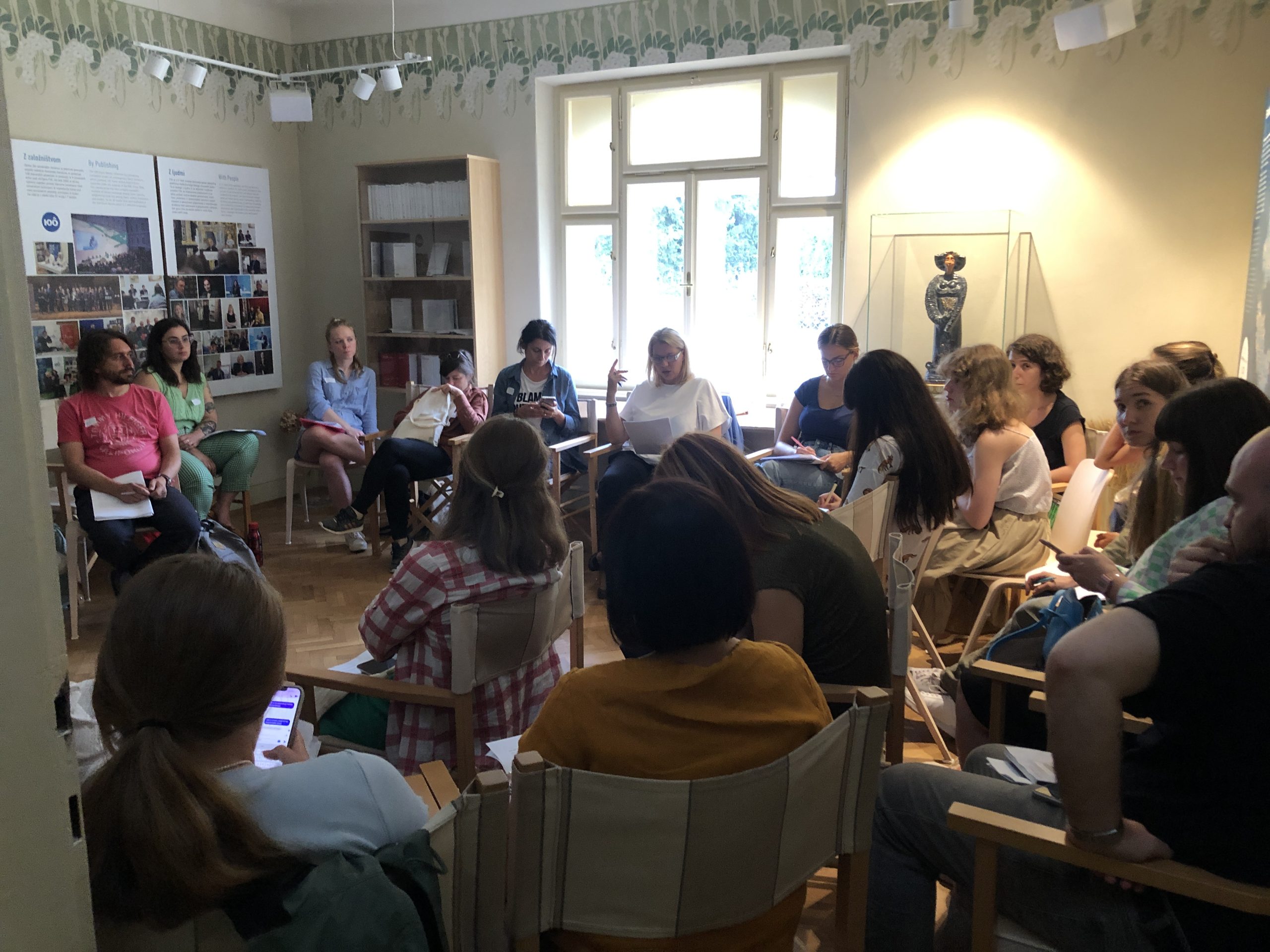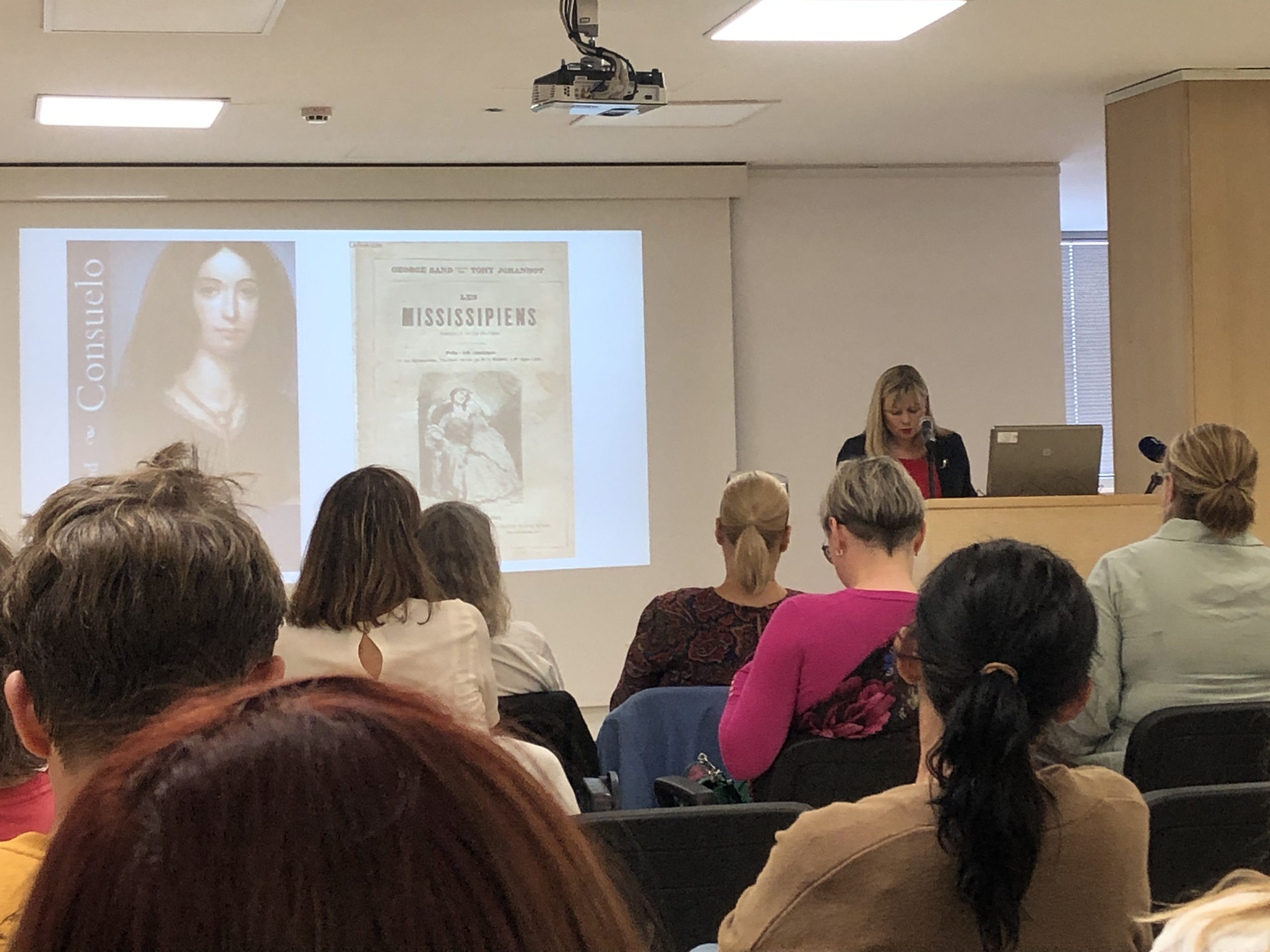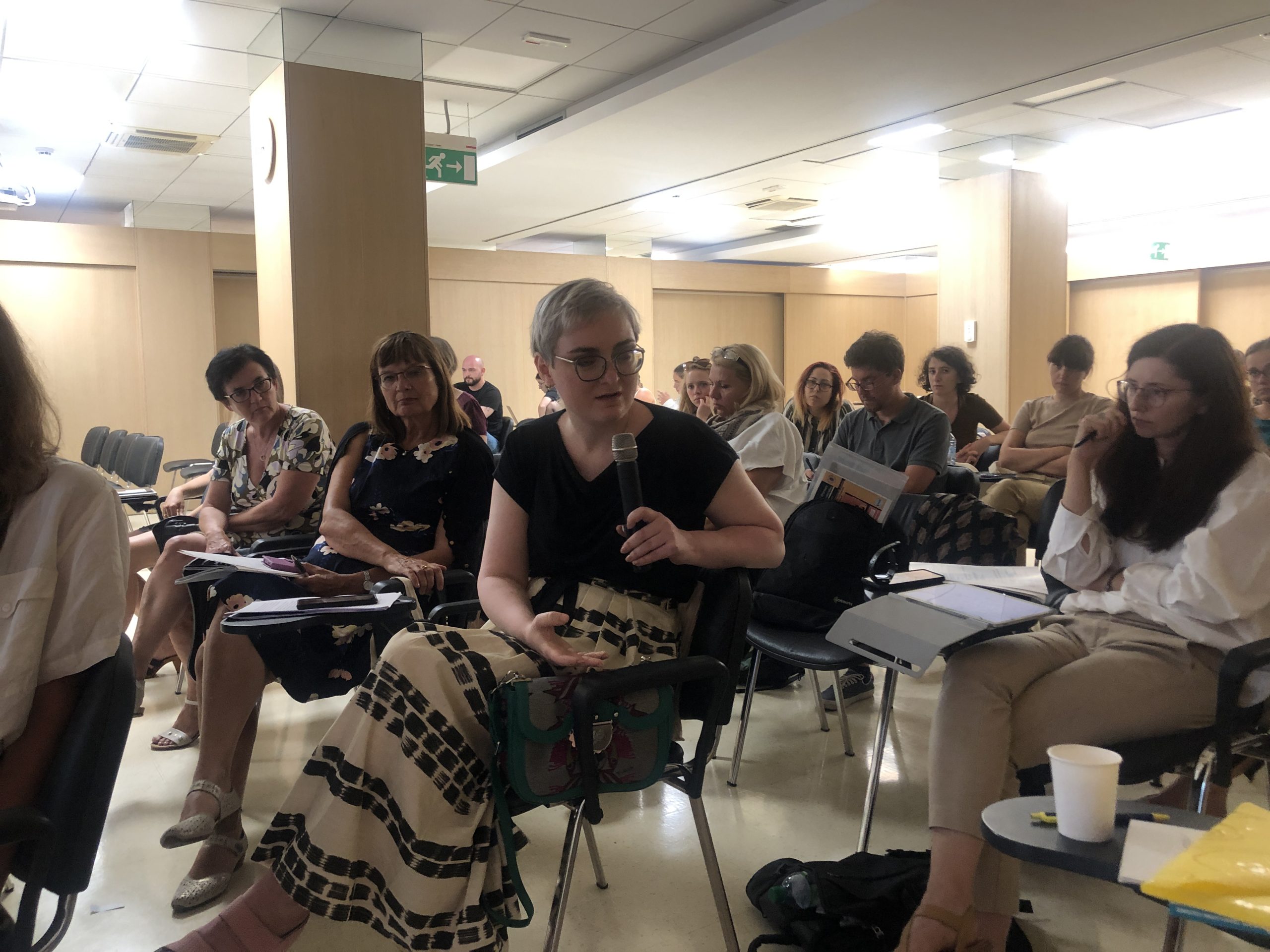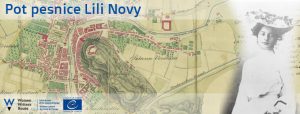The summer school “Intimacy in Women’s Reading and Writing”, organised by the CEEPUS network “Women Writers in History” and the Women Writers Route in cooperation with the Faculty of Humanities of the University of Nova Gorica, brought together participants from seven European countries.
The school, which opened up the space for discussions on intimacy, culture, femininity and other topical issues, started in Villa Zlatica, the headquarters of the Forum of Slavic Cultues and the Women Writers Route, and continued at various locations in Ljubljana and Nova Gorica.
The summer school included an international exploratory workshop entitled “Censoring Intimacy in Women’s Writing and Reading”. It brought together researchers from across Europe to discuss how women in the 19th century talked about intimacy, emotions and sexuality, which topics were particularly controversial and how they were silenced, how they hid and revealed their feelings and how self-censorship worked.
Dr Katja Mihurko Poniž, Head of the CEEPUS Network and President of the Scientific Council of the WWR, gave an introductory lecture on the history of censorship of women, emotions and sexuality. “Women writers often wrote about intimate topics and were therefore subject to censorship by editors,” she pointed out, among other things. She added that historically, women have been discouraged from pursuing science or philosophy, arguing that these are exclusively male fields. Censorship means the control of a stronger group – male intellectuals – over a weaker group – female writers who felt obliged to submit to the norms dictated by men in society, she explained. This is why many women ended prematurely ended their literary careers.
Participants paid a visit to Nova Gorica and Gorizia, listened to interesting lectures and took part in workshops.

